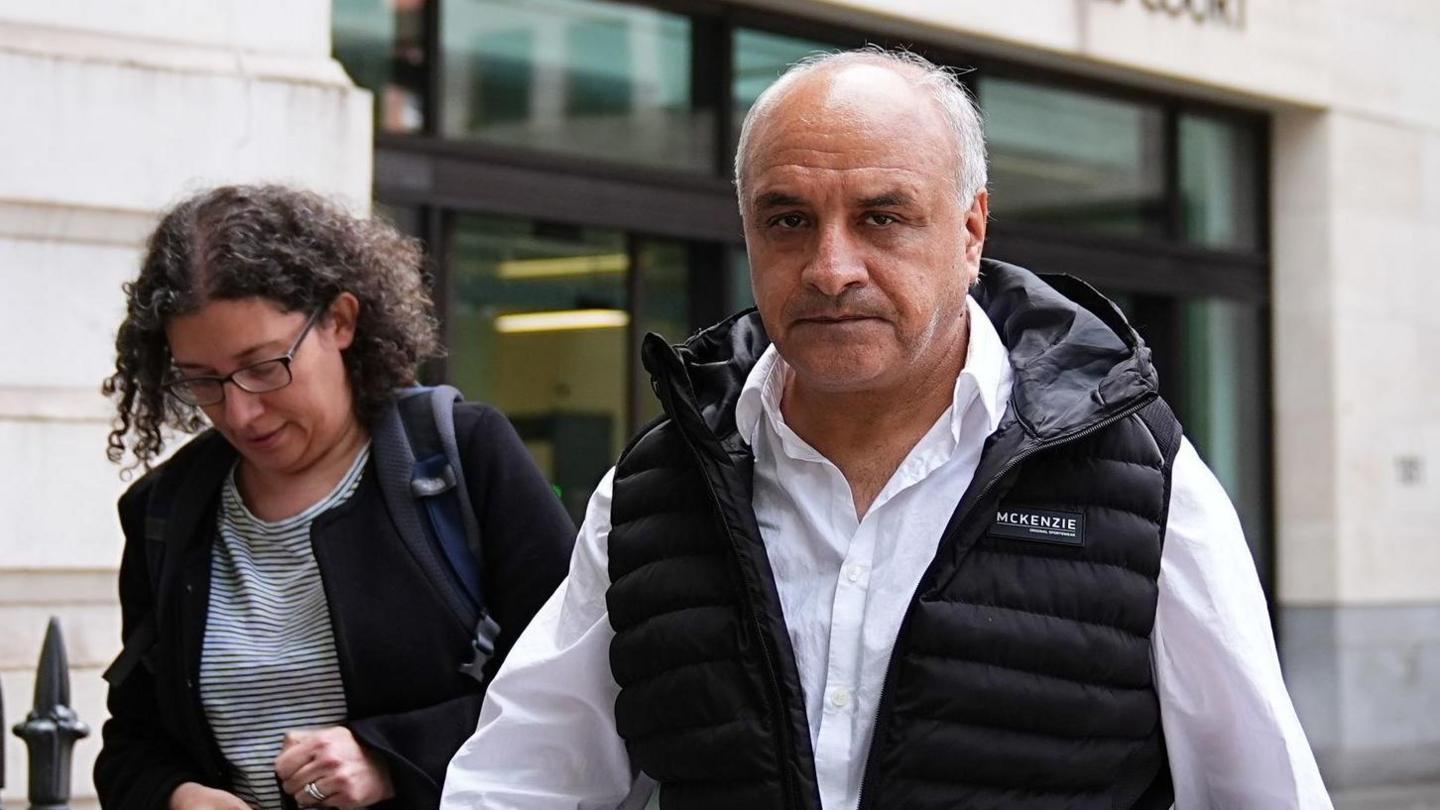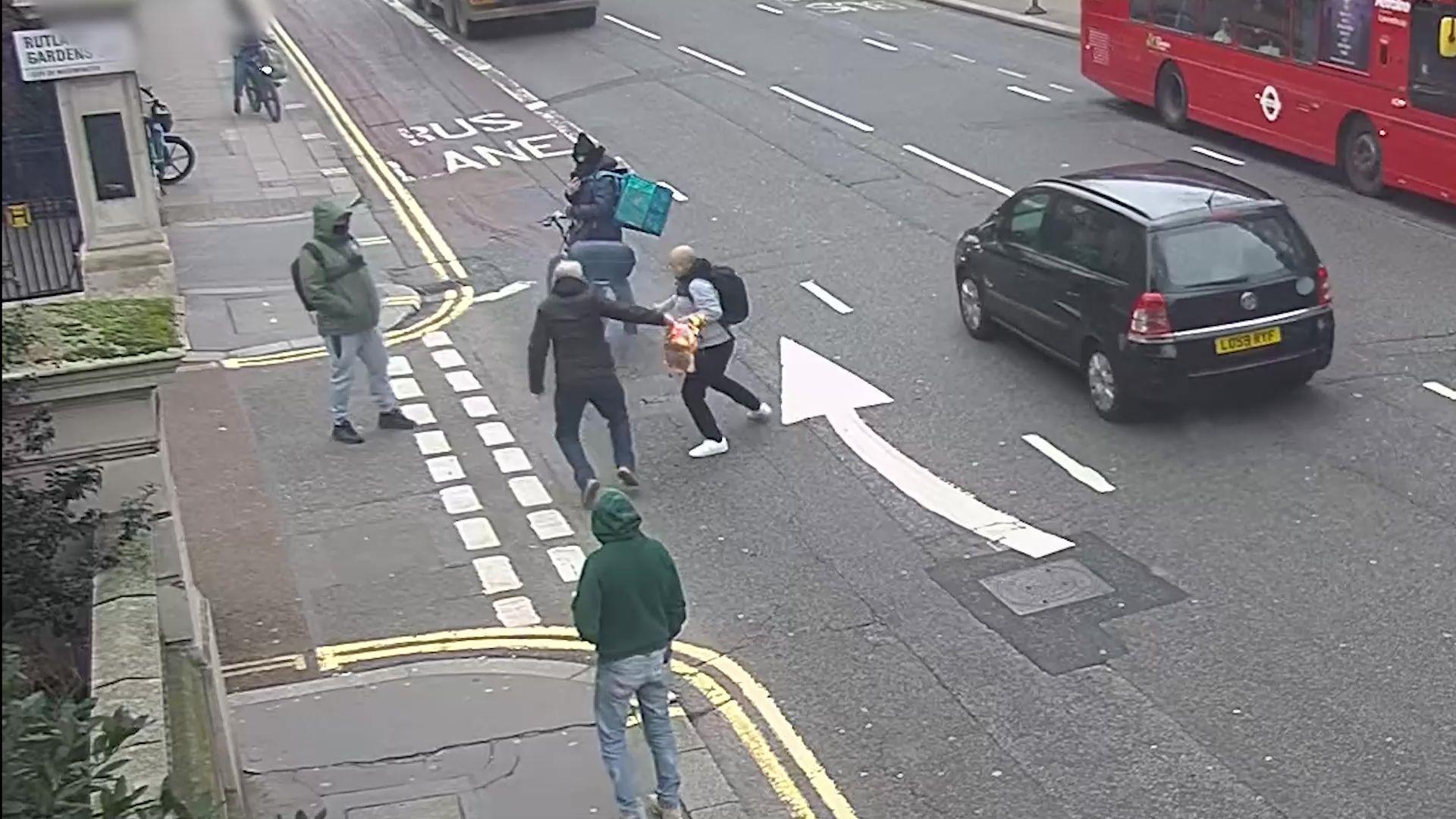Appeal against Quran-burning conviction reversal

Hamit Coskun was found guilty at Westminster Magistrates' Court in June but later had his conviction overturned
- Published
The Crown Prosecution Service has appealed against a High Court judge's decision to overturn the criminal conviction of a man who burned a Quran outside the Turkish consulate in London.
Hamit Coskun was initially found guilty of a religiously aggravated public order offence, having shouted "Islam is religion of terrorism" while holding the flaming religious text aloft outside the consulate in February.
The 51-year-old, who was backed by free speech campaigners, had his conviction overturned by Mr Justice Bennathan last month.
The CPS said that while burning a religious text was not a criminal act, Mr Coskun had "demonstrated hostility towards a religious or racial group, which is a crime".
'The right to offend'
In a statement, the CPS said there was "no law to prosecute people for 'blasphemy'", but added: "Our case remains that Hamit Coskun's words, choice of location and burning of the (Quran) amounted to disorderly behaviour... We have appealed the decision, and the judge has agreed to state a case for the High Court to consider."
Overturning the conviction at Southwark Crown Court, Mr Justice Bennathan said that while burning a book of such religious importance might be something "many Muslims find desperately upsetting and offensive", the right to freedom of expression "must include the right to express views that offend, shock or disturb".
He said Mr Coskun, who is originally from Turkey, had acted alone and had not aimed his "political speech or conduct" at a person.
Man who burned Quran wins free speech appeal
- Published10 October
Attacker of Quran-burning protester is spared jail
- Published23 September
Man fined for 'provocative' Quran burning
- Published2 June
During Mr Coskun's Quran-burning protest in Rutland Gardens, Knightsbridge, a man emerged from a nearby building and slashed at him with a large knife, later telling police he was protecting his religion.
The attacker, Moussa Kadri, 59, was given a suspended jail sentence in September.

CCTV captured Moussa Kadri attacking Mr Coskun
In a written statement after Mr Justice Bennathan's judgment, Mr Coskun said he had come to England "to be able to speak freely about the dangers of radical Islam" and was now "reassured that - despite many troubling developments - I will now be free to educate the British public about my beliefs".
Mr Coskun, who is half-Kurdish and half-Armenian, was initially convicted of a religiously aggravated public order offence of using disorderly behaviour "within the hearing or sight of a person likely to be caused harassment, alarm or distress".
The charge alleged he was motivated by "hostility towards members of a religious group, namely followers of Islam", contrary to the Crime and Disorder Act 1998 and section five of the Public Order Act 1986.
'Back-door blasphemy law'
Mr Coskun's appeal was funded by the National Secular Society (NSS) and the Free Speech Union.
NSS chief executive Stephen Evans said in a statement: "This appeal marks a renewed assault on free expression by prosecutors.
"The CPS seems determined to establish a blasphemy law by the back door. Their approach effectively treats those who are targeted with violence for offending religious sensibilities as the wrongdoers. That is an alarming inversion of justice.
"If this stance is allowed to stand, extremists will be handed a veto over free expression, and the principle of equality under the law will be seriously undermined."
Blasphemy laws were abolished in England and Wales in 2008 and in Scotland in 2021.
Listen to the best of BBC Radio London on Sounds and follow BBC London on Facebook, external, X, external and Instagram, external. Send your story ideas to hello.bbclondon@bbc.co.uk, external